Oftentimes, cousins have closer relationships than do sisters or even best friends. Victoria Mowrer and Elisabeth Weaver are a case in point. Flowers are the ties that bind them together.
While Victoria and Elisabeth are technically second cousins, they say their relationship is more akin to aunt and niece due to their age difference. Creative talents, a love of the land and a concern for the environment have guided them in circuitous routes that finally merged on a plot of land south of the city. “We always wanted to do something together,” says Victoria. That “something” is Blumen, which combines the flowers and herbs that Elisabeth grows through Lancaster Farmacy, a business she launched with her partner, Casey Spacht, and Victoria’s background in floral design.
Expansion is on the horizon for both businesses, as Elisabeth has purchased land near Strasburg that will eventually become Lancaster Farmacy’s new home.
Victoria
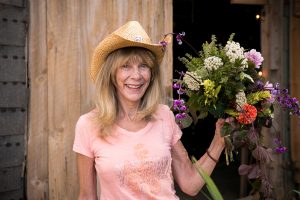 Victoria grew up near Strasburg in the village of Iva. She comes from a family of farmers and entrepreneurs. Her grandparents, Milton and Barbara Mowrer, owned a 40-acre, self-sustaining farm where tobacco and black raspberries were the main crops. Her grandmother generated extra income by making butter, which she always topped with flowers. Her other grandparents, Harry and Ruth Long, maintained huge vegetable and flower gardens on their property.
Victoria grew up near Strasburg in the village of Iva. She comes from a family of farmers and entrepreneurs. Her grandparents, Milton and Barbara Mowrer, owned a 40-acre, self-sustaining farm where tobacco and black raspberries were the main crops. Her grandmother generated extra income by making butter, which she always topped with flowers. Her other grandparents, Harry and Ruth Long, maintained huge vegetable and flower gardens on their property.
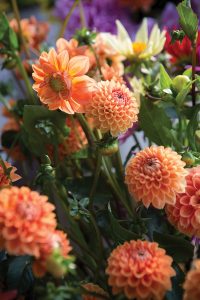 The Mowrers also owned the Timberline Lodge complex, which is now the home of the Church at Timberline. “I understand that the cabins on the property are used to provide housing for women and their children who have left domestic-violence situations,” Victoria says. “That would have made my grandparents happy to know they are somehow helping people.”
The Mowrers also owned the Timberline Lodge complex, which is now the home of the Church at Timberline. “I understand that the cabins on the property are used to provide housing for women and their children who have left domestic-violence situations,” Victoria says. “That would have made my grandparents happy to know they are somehow helping people.”
Victoria, who went on to attend Temple University after graduating from Pequea Valley High School, says she will always be a farmer at heart. “I’ve always felt that I still have one foot on the farm,” she remarks. “My dream was to marry a farmer and become an artist.”
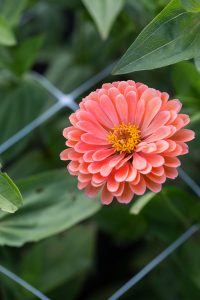 Instead, she majored in landscape design and minored in horticulture. “I took some electives in floral design and loved it,” she explains. Floral design became her artistic outlet. “I fell in love with flowers,” she says, describing the blooms as art forms in their own right.
Instead, she majored in landscape design and minored in horticulture. “I took some electives in floral design and loved it,” she explains. Floral design became her artistic outlet. “I fell in love with flowers,” she says, describing the blooms as art forms in their own right.
During her days as a student, she worked part-time for Jane Gallagher, a floral designer who owned Lady Jane’s in Philadelphia. “Through Lady Jane’s, I was able to work on lots of weddings and parties, plus we provided flowers for restaurants and offices.”
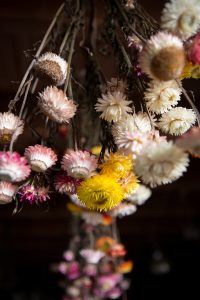 Victoria’s design expertise took her to the Jenkins Arboretum and the Philadelphia Flower Show, which, in turn, provided her with the opportunity to teach a pressed plant class and exhibit her artwork as part of the Nagano Olympic Cultural Exchange.
Victoria’s design expertise took her to the Jenkins Arboretum and the Philadelphia Flower Show, which, in turn, provided her with the opportunity to teach a pressed plant class and exhibit her artwork as part of the Nagano Olympic Cultural Exchange.
Eventually, Victoria became the manager of a native-plant nursery in Nottingham, Chester County. “Flowers have taken me a lot of places,” she observes.
Flowers also brought her back home to Lancaster County. About 12 years ago, Victoria became a business partner with her mother, Dolly Long Mowrer, and her cousin, Marilyn Long Weaver (Elisabeth’s mother), to operate Beechtree, a business that was located on a farm along Penn Grant Road. Beechtree specialized in native plants, antiques and garden art. “It was a learning experience,” she says, alluding to the difficult-to-find location and the fact that they were ahead of their time. “Today, we would probably be successful,” she says, referring to the popularity of gardening and the emphasis being placed on native plants.
After closing the business, Victoria returned to her “roots” and delved into landscape design, which provided her introduction to succulents. Now, through Blumen, she uses the intriguing plants (as well as other plant material) to create floral designs and living heirloom jewelry for weddings and other special occasions.
Elisabeth
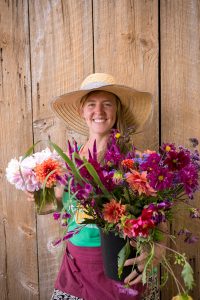 It was inevitable that flowers would become part of the Buy Local movement. In fact, they’ve been given their own credentials: Locaflor and Slow Flower. A great deal of credit for this new floral philosophy probably goes to Erin Benzakein, who grew up in the Seattle area but always wanted to be a country farmer. In 2001, she and her family made the leap and bought a small farm in Washington’s Skagit Valley, where they intended to grow vegetables, raise chickens and nurture an orchard.
It was inevitable that flowers would become part of the Buy Local movement. In fact, they’ve been given their own credentials: Locaflor and Slow Flower. A great deal of credit for this new floral philosophy probably goes to Erin Benzakein, who grew up in the Seattle area but always wanted to be a country farmer. In 2001, she and her family made the leap and bought a small farm in Washington’s Skagit Valley, where they intended to grow vegetables, raise chickens and nurture an orchard.
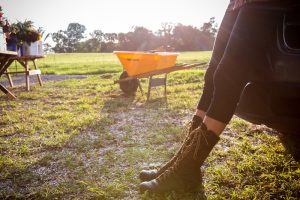 Erin’s initial vegetable garden included a row of sweet peas. News of the fabulous vegetables that grew on the farm traveled fast, but what really intrigued customers was the flowers. Soon, orders for Erin’s flowers came flooding in and by 2008, she had ditched the vegetables and Floret Flower Farm was officially born.
Erin’s initial vegetable garden included a row of sweet peas. News of the fabulous vegetables that grew on the farm traveled fast, but what really intrigued customers was the flowers. Soon, orders for Erin’s flowers came flooding in and by 2008, she had ditched the vegetables and Floret Flower Farm was officially born.
Floret has become a media sensation: You name the magazine, and Floret’s gorgeous flowers and dreamy bouquets have probably been featured in it. Floret has also become a social-media sensation. And, Erin has written a book and conducts online seminars and courses for flower farmers and designers worldwide.
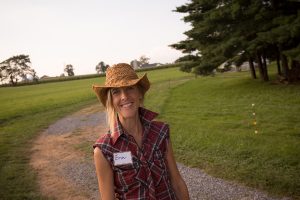 Elisabeth has taken a few of Erin’s online courses. Like Erin, who loved to visit her grandparents and spend time in their gardens, Elisabeth liked to “hang out with my grandfather,” who maintained what she describes as a “huge garden.” While conversation was always minimal, Elisabeth enjoyed the unspoken camaraderie the two shared while they carried out their garden chores. She was also a regular visitor to the neighboring Amish farm. “That was pretty much the extent of what I knew about farming,” she says.
Elisabeth has taken a few of Erin’s online courses. Like Erin, who loved to visit her grandparents and spend time in their gardens, Elisabeth liked to “hang out with my grandfather,” who maintained what she describes as a “huge garden.” While conversation was always minimal, Elisabeth enjoyed the unspoken camaraderie the two shared while they carried out their garden chores. She was also a regular visitor to the neighboring Amish farm. “That was pretty much the extent of what I knew about farming,” she says.
As a high school student – first at Lampeter-Strasburg and then at Lancaster Country Day – Elisabeth’s interests included art, community involvement and nonprofit organizations. At Hampshire College in Massachusetts, she was able to put them together by devising a major that enabled her to take courses in art education, community development and urban studies. She worked on an urban-garden endeavor in Holyoke, helped students with an after-school project that focused on murals and went on to work with youth-centered endeavors. “Everything was funded through grants,” Elisabeth explains, which meant that job stability was fleeting.
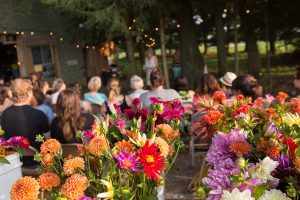 Her ah-ha moment came through volunteering at a Conway-area herb farm. “It was the first time I became aware of herbal CSAs [Community Supported Agriculture], and I liked learning about the healing aspect of herbs,” she recalls. “I call that experience my awakening moment.”
Her ah-ha moment came through volunteering at a Conway-area herb farm. “It was the first time I became aware of herbal CSAs [Community Supported Agriculture], and I liked learning about the healing aspect of herbs,” she recalls. “I call that experience my awakening moment.”
After 10 years in Massachusetts, Elisabeth was ready to make a change. She returned to Lancaster, aiming to continue her interests in community involvement, art (she did several mural projects, including one for Crispus Attucks) and herbs. “I rented a garden plot at County Park and sold the herbs that I grew at East Side Market,” she explains.
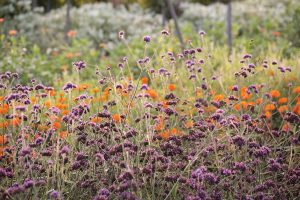 She met Casey at the Punk Rock Flea Market and became intrigued by his interest in foraging. He invited her to come along on one of the foraging classes he was hosting. “I was the only person to show up for it,” she laughs. They ended up spending the entire day together.
She met Casey at the Punk Rock Flea Market and became intrigued by his interest in foraging. He invited her to come along on one of the foraging classes he was hosting. “I was the only person to show up for it,” she laughs. They ended up spending the entire day together.
Casey, of course, was familiar with the CSA concept as he is the director of Lancaster Farm Fresh, a cooperative of nearly 150 local farmers whose products are organically grown and whose animals are pastured and/or grass fed.
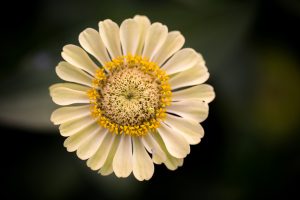 Casey was impressed by the herbs that Elisabeth was growing and invited her to join the co-op. The co-op also offered a flower share, but supply was not meeting demand. “He asked me if I could grow flowers, so I set out to become a flower grower,” she says.
Casey was impressed by the herbs that Elisabeth was growing and invited her to join the co-op. The co-op also offered a flower share, but supply was not meeting demand. “He asked me if I could grow flowers, so I set out to become a flower grower,” she says.
But, to succeed, she would need land. An acquaintance told her about a farm in West Lampeter Township whose acreage was certified organic. Its owner used a portion of the acreage to primarily raise sheep and other animals. Elisabeth made him a proposal, and because his wife loves flowers, he agreed to lease her a few acres to grow flowers.
Lancaster Farmacy & Blumen
Lancaster Farmacy debuted in 2009. It’s part of a “growing” trend in which owners are being called farmer-florists. Indeed, Elisabeth is known to volunteers and customers as “Farmer Eli.” Today, Elisabeth and her corps of volunteers grow more than 100 varieties of flowers and herbs on 5 acres. Flower shares are made available through Lancaster Farm Fresh, as are CSMs (Community Supported Medicine) whose products (salves, creams, etc.) harken to a time when herbs were used for healing purposes. Elisabeth loves the folklore that relates to herbs and flowers. “It adds to the experience of the plants,” she says.
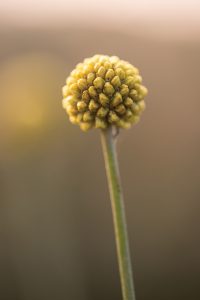 She admits the venture has been very much a learning curve, with successive planting being key, as it ensures product is readily available throughout the growing season.
She admits the venture has been very much a learning curve, with successive planting being key, as it ensures product is readily available throughout the growing season.
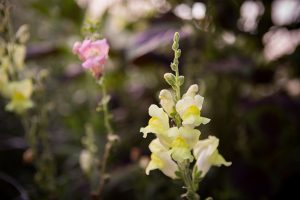 Thanks in great part to the Locaflor and Slow Flower movements, flowers are being viewed in an all-new light by consumers. The movements address such topics as where and how flowers are being grown and how the laborers who tend them are being treated. As a result, organic, living wage and local have become words to grow flowers by.
Thanks in great part to the Locaflor and Slow Flower movements, flowers are being viewed in an all-new light by consumers. The movements address such topics as where and how flowers are being grown and how the laborers who tend them are being treated. As a result, organic, living wage and local have become words to grow flowers by.
According to Victoria, how we view growing flowers is being driven by “a concern for the environment and an expansion of consciousness.” In layman’s terms, when you smell a flower that is not organically grown, you could be “breathing in a lot of chemicals.”
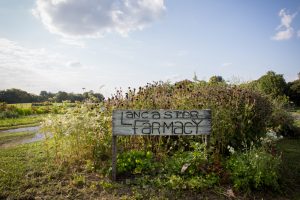 Even local floral designers and DIY brides are recognizing that locally gown makes sense and are purchasing Lancaster Farmacy’s “Farmer’s Pick” buckets for their wedding work.
Even local floral designers and DIY brides are recognizing that locally gown makes sense and are purchasing Lancaster Farmacy’s “Farmer’s Pick” buckets for their wedding work.
Blumen, which is the German word for bouquet, debuted four years ago. The Floret look was inspiring brides to think local, which meshed with Victoria and Elisabeth’s long-held goal to launch a cooperative venture. Elisabeth’s floral products and Victoria’s design expertise formed the basis of Blumen.
Last year, Elisabeth and Casey began discussing their next move. When the opportunity to buy land near Strasburg presented itself, they saw it as the chance they were looking for to expand. “I want to expand in a number of ways,” she says, naming the addition of trees and shrubs as part of those plans. The barn they plan to build will provide ample space for seminars and events such as the annual Fistful of Flowers Soirée that is held in late summer.

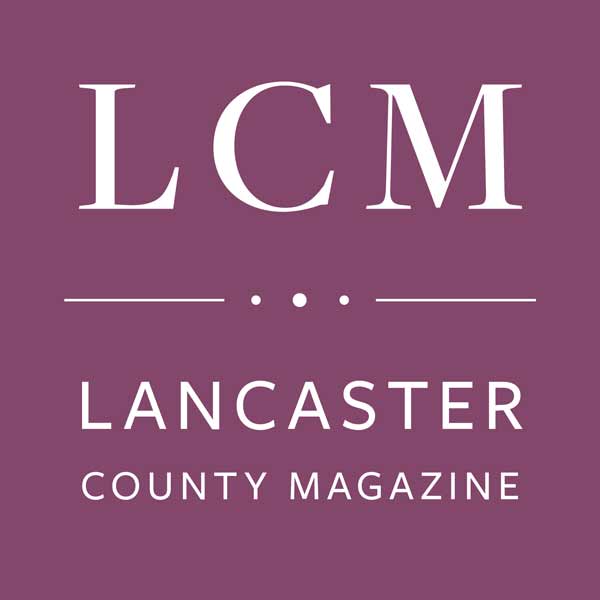


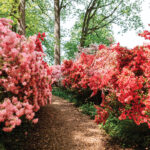

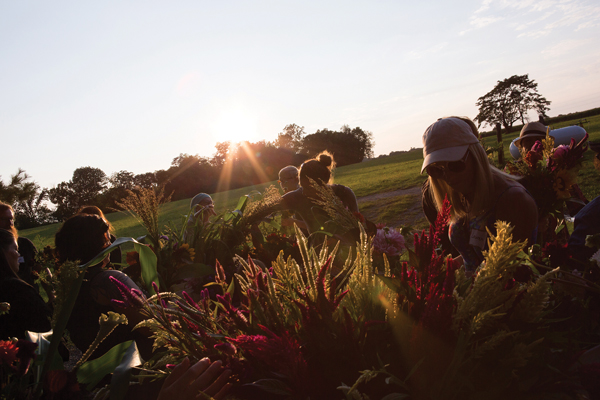
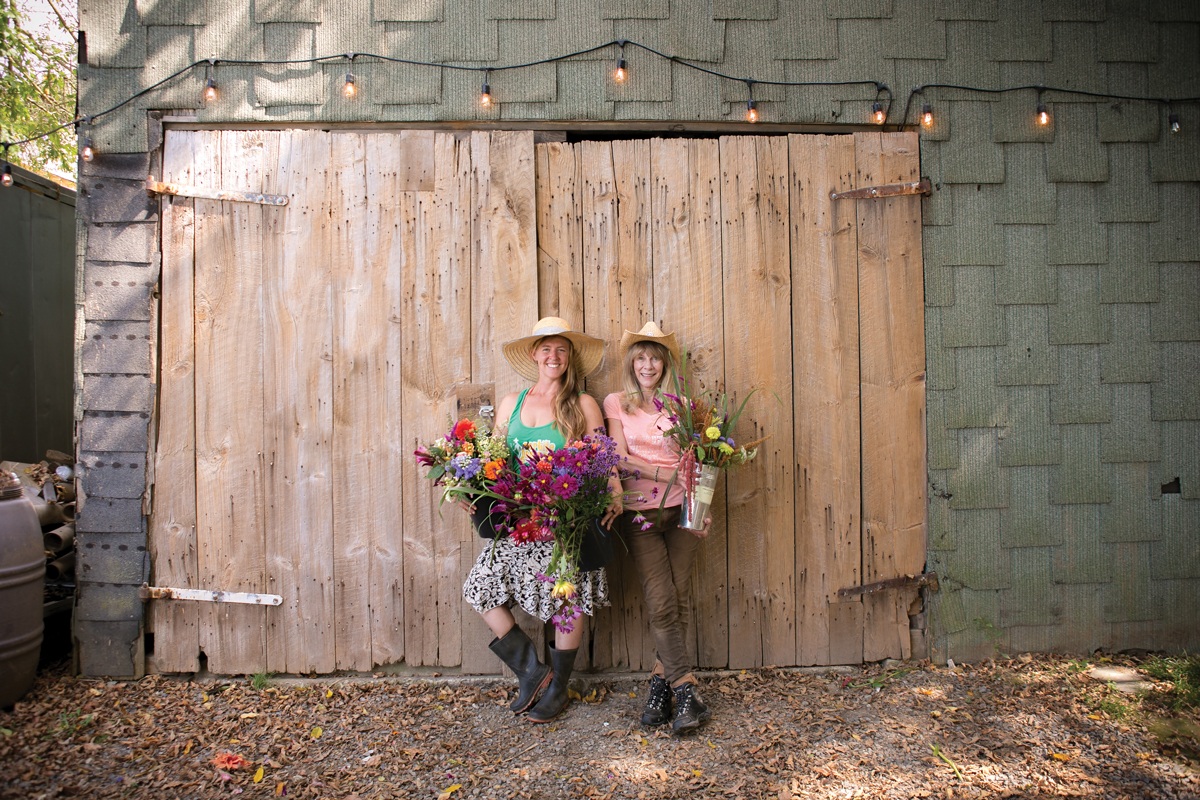
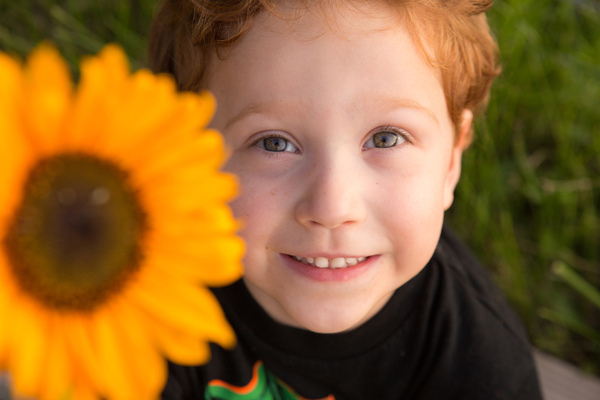
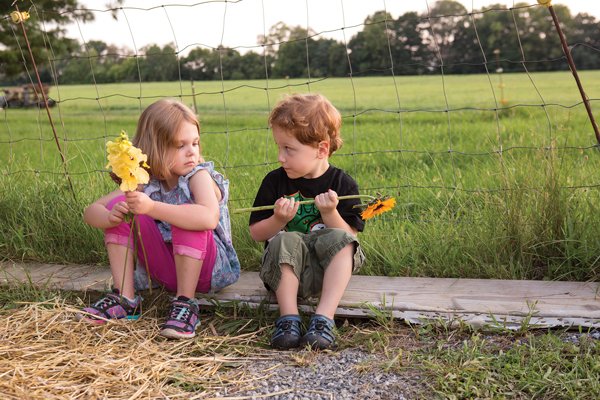
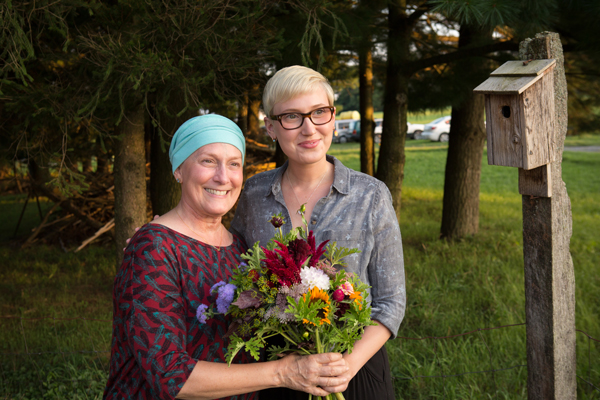
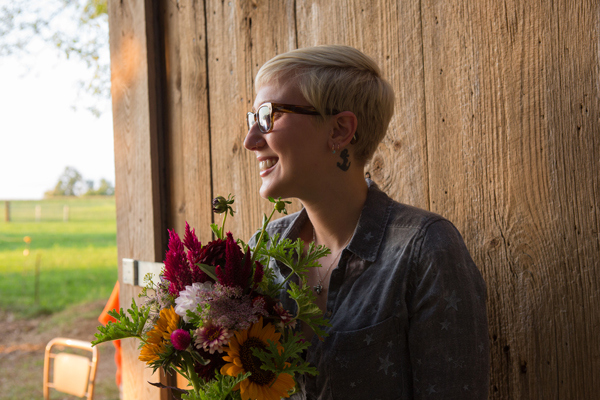
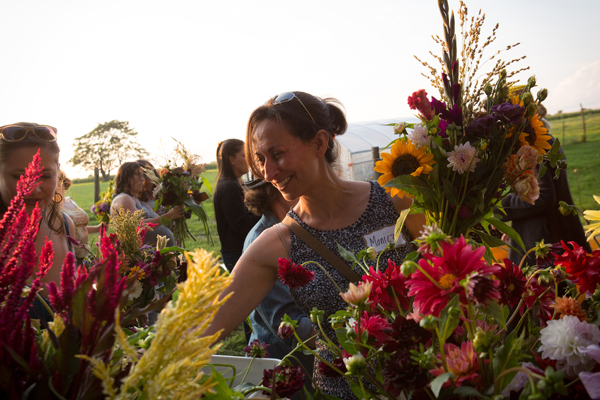
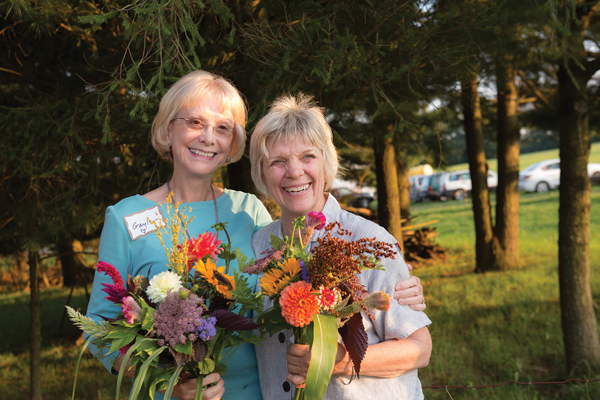
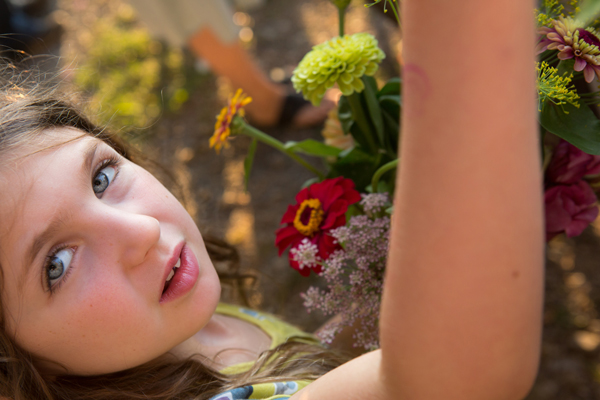
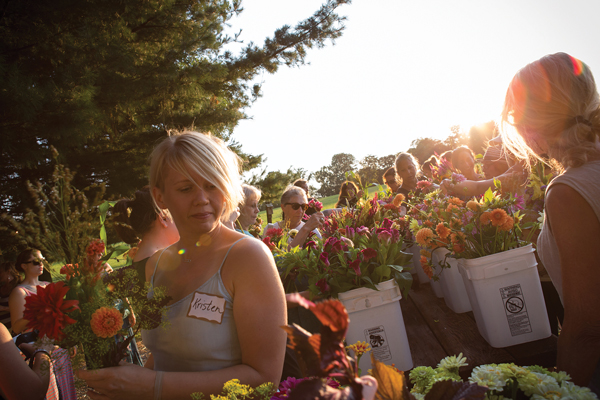
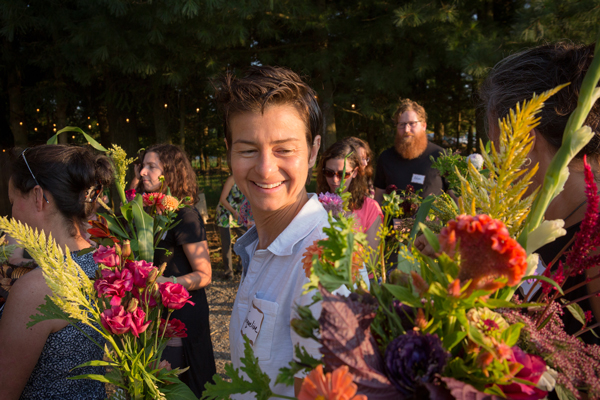
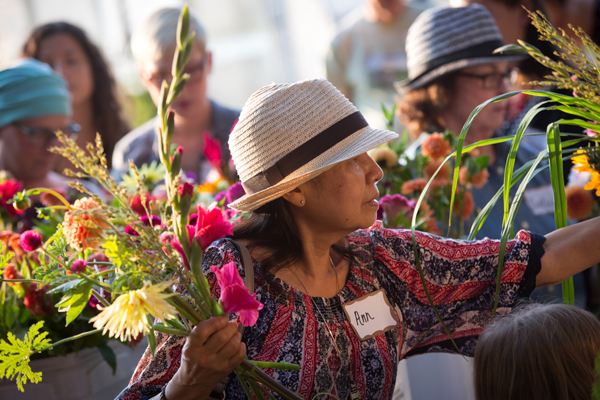
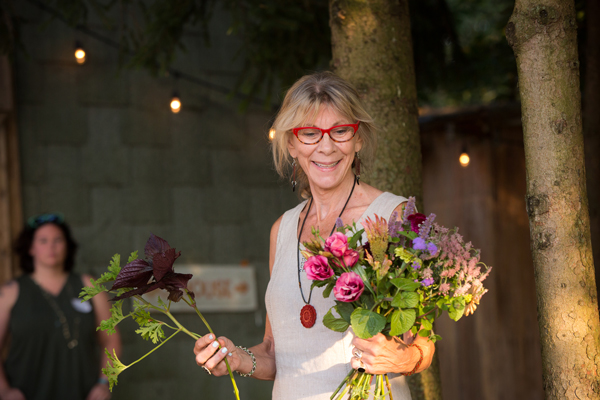
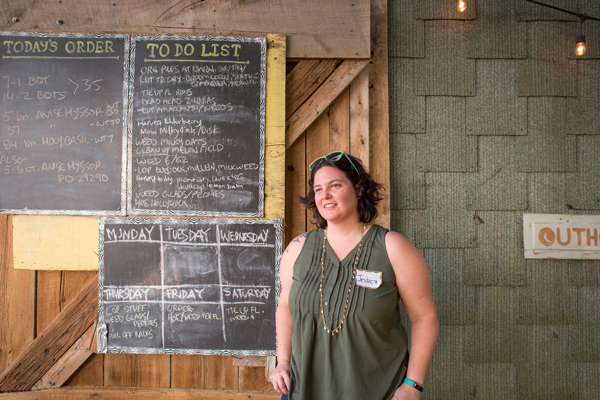
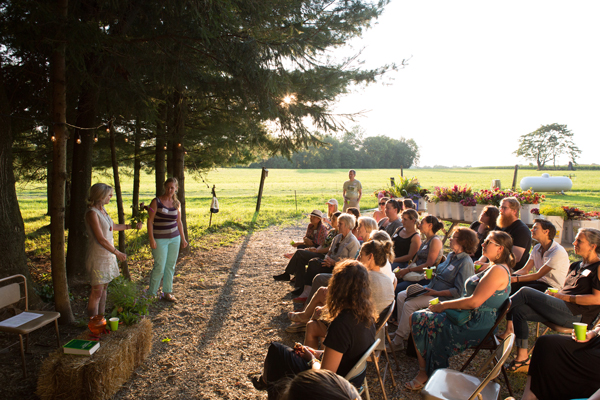
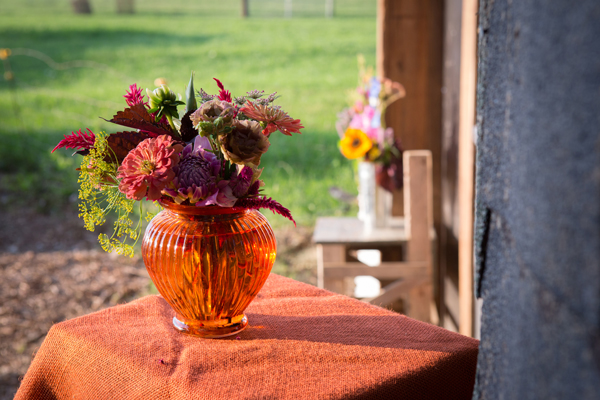
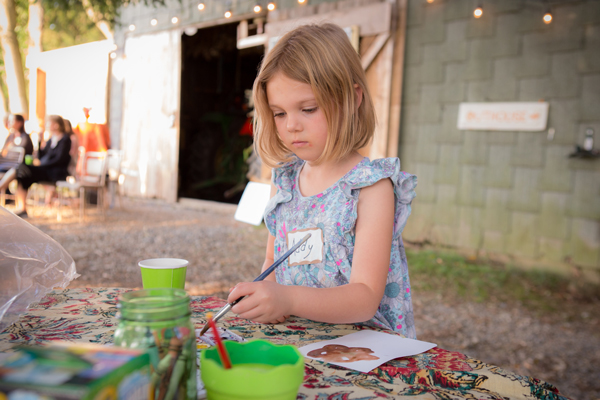
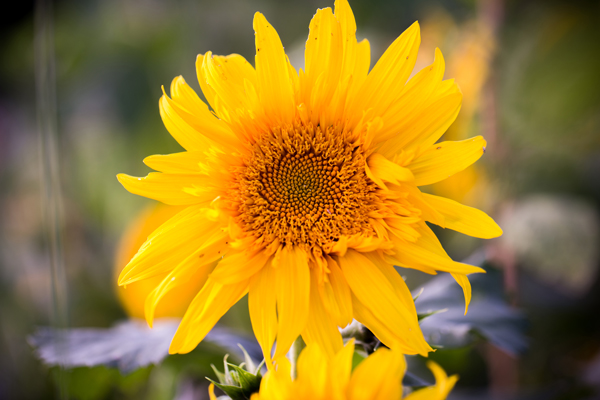
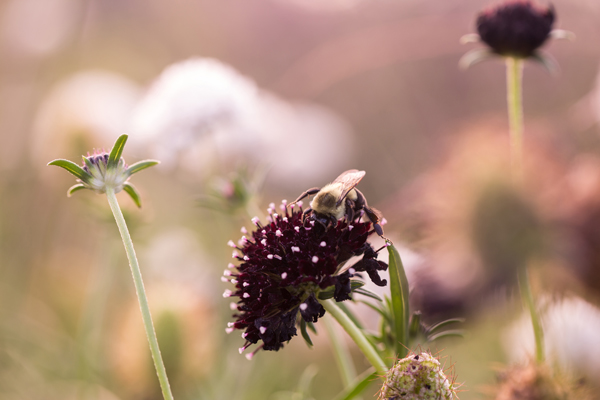
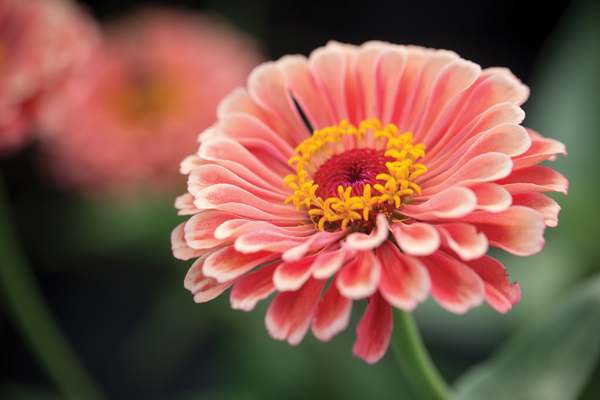
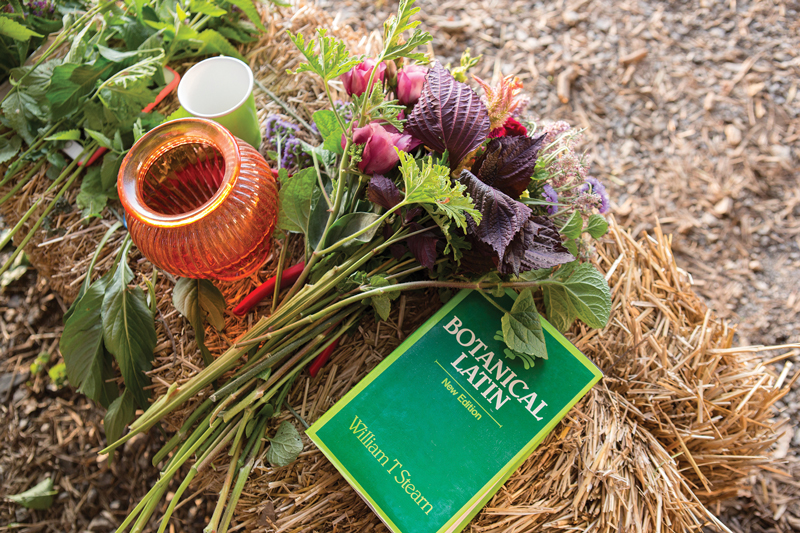
Looks beautiful!
Victoria,
Very interesting and well deserved praise for all of you. It also brings back of an early connection of our family and the Lancaster Farmers Market. Every year a few days before Memorial Day we would leave Chester at 3:30am in order to be at the market by 5:00am, when it opened, to buy fresh flowers to be but on all the family graves. One of those family members was Karen Morgan’s grand mother.